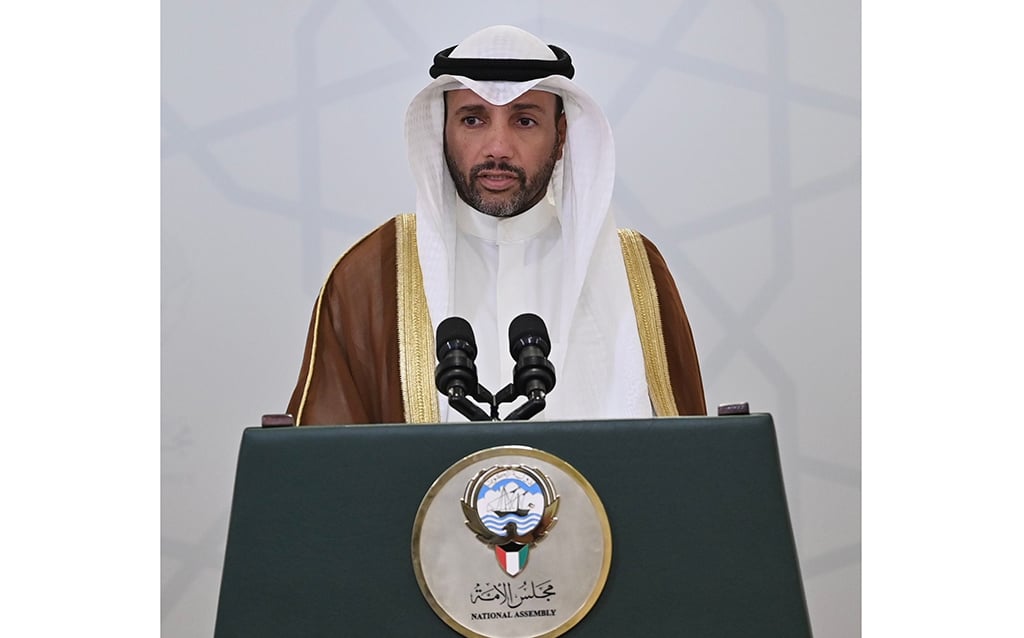By B Izzak
KUWAIT: MP Marzouq Al-Ghanem on Sunday submitted a number of political reform draft laws, including a bill demanding the interpretation of a law that bars political prisoners from running in elections. Ghanem said that he has sent the draft law to the National Assembly to be sent later to the legal and legislative committee. The bill questions the validity of the law that bars politicians from elections, which was passed in 2016. Ghanem said he believes the law does not apply retroactively and also does not apply to crimes that took place before the law became effective.
The law bars persons convicted of insulting HH the Amir from running for public office. Ghanem said he has resubmitted a draft law calling for a fundamental solution to the issue of stateless people, known as bedoons, adding the bill provides a durable and fair solution. He also resubmitted another law calling to establish a central body for citizenship in a bid to safeguard national identity. Ghanem also submitted a draft law calling to amend the election law to state that female members of parliament must be at least 20 percent of winners in each constituency, which effectively means there will be at least 10 female MPs in the 50-member Assembly.
This bill effectively calls for creating a quota for women’s seats in the Assembly for the first time in Kuwait since 2005, when Kuwaiti women were granted full political rights. Ghanem said he also resubmitted a draft law which was first filed by former MP Yousef Al-Fadhalah calling to amend the law of the constitutional court to state that the court must look into decrees dissolving the Assembly and calling for elections before the election date so as to avoid nullifying the elections. The lawmaker said he also resubmitted a draft law calling to adjust the government pay-scale, adding the bill is expected to raise salaries of 90 percent of Kuwaiti government employees. Meanwhile, the Assembly’s legal and legislative committee began on Sunday studying the issue of the constitutional court.
A number of lawmakers have submitted draft laws aimed at regulating the work of the country’s top court, which has annulled the National Assembly three times since Feb 2012. MP Bader Al-Mulla said he and a number of MPs have submitted a draft law to amend the law governing the constitutional court with the aim to prevent the court from looking into Amiri decrees dissolving the Assembly and inviting voters to cast their ballots. Mulla said this will prevent the court from annulling elections and scrapping the Assembly. The proposed amendment will restrict the role of the constitutional court to issuing verdicts on constitutional matters including laws, disputes and others.
MP Khaled Al-Otaibi said he has submitted a draft law to immunize the Assembly against getting nullified by the constitutional court. He said the amendment requires that decrees related to dissolving the Assembly or calling for parliamentary elections must be verified by the constitutional court before they become effective. Five lawmakers meanwhile submitted a draft law that calls for comprehensive changes to the formation of the constitutional court. The amendments call for making the court completely independent, even from the rest of the judiciary.
The bill calls for establishing the constitutional court with seven members, five from the judiciary, to be appointed by the supreme judicial council, one member to be appointed by the government and the seventh member to be elected by the National Assembly from outside its members. The chair of the constitutional court must be elected from the five judges and his term should be for four years, which can be renewed only once. According to the draft law, Amiri decrees dissolving the Assembly and calling for parliamentary polls must be sent to the court immediately after they are issued.









